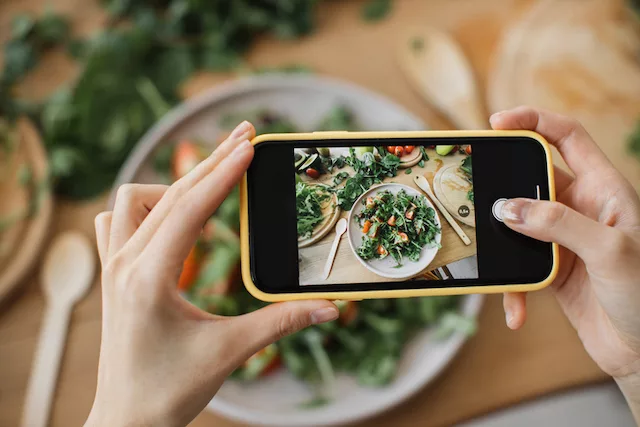You know how we’re always snapping pics of our food before we dig in, making sure we get that perfect shot for Instagram? Between sharing the mouth-watering details of a four-course meal we had and posting our favorite high-protein snack after a hard workout, we’re tracking our diets now more than ever. And it turns out our little photographic habit might be doing more than just making our social media pages look aesthetically alluring. New research conducted at Curtin University says that taking pictures of our meals could be the secret to a healthier diet. Who knew, right?
The Study That Turned Food Pics into Health Goals
Okay, so here’s the lowdown. Researchers at Curtin University recently conducted a study to determine how accurately participants remembered everything they ate in a 24-hour period. One of the groups was instructed to report everything they had consumed in the last 24 hours using only what they could recall from memory. The other group was asked to take photos of everything they ate using the mobile Food Record (mFR) app.
After photos were submitted to the research team, a dietitian analyzed the images, noting various markers and other details in addition to measuring the weight of the meals (done in both groups). Then, they compared how accurate participants were at recalling what they ate from memory versus when they took photos. Unsurprisingly, the results showed that participants who took photos had a much higher accuracy in recalling what they’d eaten in the past 24 hours than those asked to remember what they ate.

Why Your Food Pics Matter More Than You Think
So why does this even matter? Well, according to one of the authors and PhD candidate, Clare Whitton, “accurate, reliable data about what the population is eating is key to supporting people to optimize their health.” And oftentimes, things like distracted eating and over-measuring foods (think nut butter and oils) can be easily miscalculated and significantly impact our health.
By taking the burden off our (sometimes forgetful) brains and letting the app do the work, we’re much more likely to get accurate results of our nutrition and diet overall. This could be a game-changer for dietitians and anyone trying to improve their eating habits. Brio-Medical Nutritionist, Sarah Herrington, MS, CNC, CPT says that having access to technology like this is a “mindless alternative that will help guide individuals to make better choices,” especially for those struggling with issues like time management, anxiety, and disordered eating.
Co-creator of the Food Record app, Professor Deborah Kerr, says the team is continuing their work, further integrating AI to analyze these food photos automatically. So, in the future, all you might need to do is snap a pic, and boom! The app tells you everything about your meal, from calories to nutrients.
What This Means for Us and Our Healthy Habits
Creating and posting appetizing food photos has become the norm in how we create, share, and influence ourselves and others within habits of certain eating behaviors. “It’s why you see a giant photo of a hamburger from a fast food restaurant when you drive down the highway. Food corporations target our visual centers to drive our choices,” explains Herrington. In her nutritional practice, she has found that the numbers (calories, sugar, and fat) are a greater deterrent than looking at a photo of the food alone.
Because food plays such a significant role in our lives, having a more accurate tell of what exactly is going into our bodies (especially those with certain health goals) is the best way to get those results. Using analytics on our foodie photos also makes it much easier to keep track of what we’re eating over time and continue to make healthier choices. Imagine being able to get accurate dietary advice just from an image—no more guessing if that salad was as healthy as you thought!
“It’s important to recognize that obsessing over numbers can sometimes lead to unhealthy behaviors,” states Herrington. “It can overshadow the importance of focusing on nutrient quality and overall well-being. When tracking becomes more about hitting a number than nourishing your body, it can create a stressful and unhealthy relationship with food. That said, it can be an invaluable tool for assessing individual dietary intake when progress stalls, or looking at patterns within a population. It’s also an excellent way for beginners to learn about portion sizes and understand the caloric density of different foods.”
The Takeaway
As technology improves, this type of food tracking will also become progressively simpler and more accurate. So, the next time you’re out for brunch, go ahead and snap that pic. It’s not just for the ‘Gram—it might help you make better food choices. Who knew our little obsession with food photography could be so beneficial?
